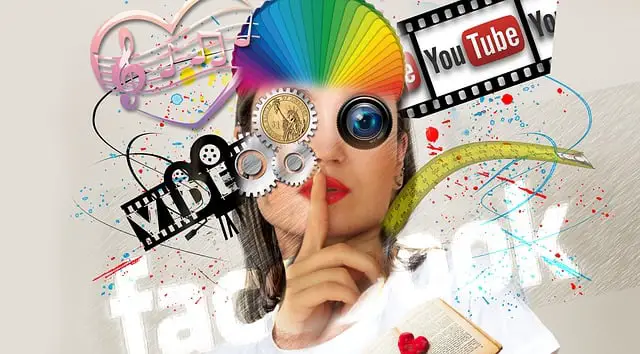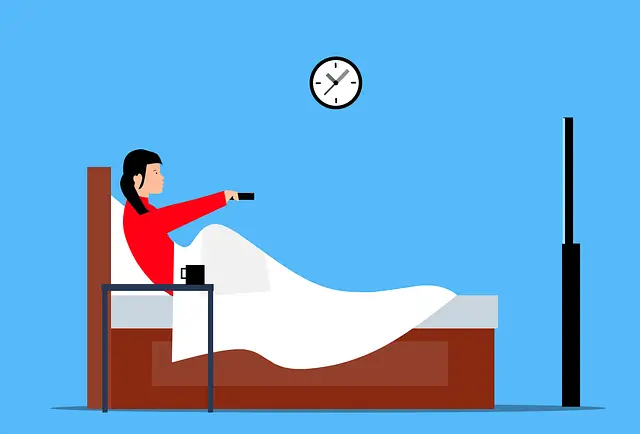A Reflection on Entertainment Media as a Career Path
I’m nervous since this is my last commentary essay for the Collegian as an undergrad. I’m worried because in two weeks, I’ll be a journalist on the field with a B.A. in Mass Media and Communication, and I still have no clue what I want to write about.
My lifelong hobby has been entertainment media. I played soccer during the day and would come home and play “Smash Bros.” with my teammates, I’d go to school and wait all day to get home and watch a few hours of Cartoon Network, I’d play music and use what I learned about music theory to appreciate the score of a new movie that I saw, and above all, no matter what I did from my childhood to now, I always knew that no matter how stressful my day-to-day life got, or how invested I got in my courses and different interests, that

The idea that our entertainment serves as an escape from current concerns and that we go to these imaginary worlds to avoid dealing with our own is well-worn. However, I find myself at a specific location where I have the opportunity to participate in a unique discussion.
After studying journalism in high school and gaining experience in communication, production, word mills, internships, and online publishing in college, I can safely state that I am prepared to join the world of media and write. During my first year at the Collegian, I began writing as an Arts and Entertainment columnist, producing movie and game reviews that combined my passion with my writing talents.
After that, I spent two years as editor of the Arts and Entertainment section, penning thousands of words and dozens of articles on entertainment media, the companies that generate it, and how entertainment fits into our media and cultural landscapes.
When I took over as editor-in-chief, I continued to immerse myself in the media scene, learning how to manage, edit, and operate in the newsroom. Throughout my education, I learned how to more successfully cover issues such as current events, politics, social justice, personal features, local news, and more, and I expanded well beyond merely writing movie reviews.
I will be doing one year of graduate school here at La Salle University, so I have the time, but I have a decision to make: Do I enter the traditional news media market and enjoy more job security, a more defined pipeline, and the ability to write about and describe important events that will help others become educated and informed? Or do I go down the path of entertainment journalism, driving forward my passion for movies and games through reviews, industry breakdowns,
I’ve always regarded entertainment to be a pastime, yet I’m profoundly involved in it and understand how it works. I could make it a profession. But, first and foremost, I feel this tremendous stigma that entertainment is seen as a lesser industry by an uneducated majority, that being involved in it wastes your life and does not contribute to society. Second, if I disregard this emotion and believe that these individuals are incorrect, I’m scared that pursuing entertainment as a job would force me to abandon it as a passion. At what point does viewing a movie for work become stressful rather than enjoyable? Would I like reviewing a lengthy video game before an embargo period? These questions constitute a minor impediment to my choice.
I still have this choice to make, but I also believe that 1. this stigma is false and that there is a way for me to overcome it, and 2. there is a way for me to value entertainment in my profession without losing it as a pastime. To assist me make this choice, I spoke with several of my friends and mentors at La Salle, who had a much clearer perspective at the moment. After hearing from them, I want to be able to better inform my choice, and I hope that anybody reading these interviews will learn what they need to know if they are in a similar circumstance to mine.
Dr. Mark Lashley, Communication Professor, Television Critic, and Media Researcher
I took three entertainment-related classes with Dr. Mark Lashley while at La Salle: Media Criticism, Prestige TV, and TV Comedy, the latter two of which I took as honors electives, demonstrating how much thinking, research, writing, and analysis went into the courses. When I began thinking about my own career, I couldn’t think of anybody better to turn to at La Salle than Lashley.
“I got the sense pretty early that media, even purely entertainment media, have a lot to teach us about how society works, what we value and how we see ourselves,” Lashley said. This is how I’ve always related with media, being pulled to both ridiculous diversions from reality and meaningful insights on how we behave as humans.
“When I teach TV and film courses, I often joke that I’m going to attempt to damage the things we like by over-analyzing the process and messages in our favorite programs and movies, but the fact is that being a critical reader of media can greatly enhance the pleasure of it in a variety of ways. Knowing what a creator is trying to say, what techniques they’re using to communicate it, and how we, as the audience, interpret it, helps us cope with the power of messages and how tales are delivered,” he said.

When I questioned Lashley about my fears about entertainment being a job rather than a pastime in his own life, he said, “It is somewhat of a ‘job’ to keep up with the culture, but there are definitely far worse ways to spend one’s time.”
“I understand that producing entertainment isn’t always a life-saving or even profitable way of living. But the arts are essential,” added Lashley, “we tend to dispute a lot about various types of entertainment and negotiate their meanings, which I believe is a testimonial to how much importance we give these writings and how much significance we find in them.”
On the matter of entertainment criticism and journalism, where I may find myself, Lashely said, “I believe producing is vital, but I think criticism is valuable as well. The issue here is that its value is dwindling in the media industry, as outlets have cut the quantity of criticism they print and usually pay writers and freelancers less than ten years ago. That being said, having knowledgeable, informed individuals engage in debate may assist consumers comprehend the themes and messages contained in media, as well as support outstanding, valuable work that may not otherwise reach the public.”
“The world is always going to need entertainment,” Lashley said, and I couldn’t agree more. Being able to ponder, escape, wonder, and be delighted is such an important part of all of our lives, and I can’t imagine a world if these things just disappeared.
Audrey Walker, a senior criminal justice student and potential Pepperdine law student.
Walker, a vocalist and member of the Masque of La Salle, said that she had been interested in the music business for years but opted to pursue law in college for both professional satisfaction and financial possibilities. She has committed to Pepperdine Caruso School of Law, where she plans to study entertainment law and work with singers and other artists in court.
“I wasn’t originally planning on going into entertainment law, but when I realized I could marry my two interests in one career, I realized that it would be the most fulfilling area of practice for me,” Walker said.
“People have been participating in and attending performing arts events since antiquity. I’ve always believed that there’s something essentially human about performances, and they contribute to a really universal, human civilization;” added Walker, “when the pandemic came, concerts and other live acts were the first things to disappear, and I recall how distraught everyone appeared about that.”
I asked Walker how she thought persons in entertainment-related areas might contribute to society. She said, “Because entertainment is both an intrinsic component of society and a mirror of society, persons who work in entertainment in whatever capacity undoubtedly contribute to the advancement of society. The entertainment sector not only responds to cultural aspirations, but also shapes and affects them.”
Jonathan Colella, senior communication major and La Salle TV host
Jon Colella is a buddy of mine who I met and learnt a lot from at the communications department, connecting over the fact that we are among the few entertainment-minded students in a field dominated by sports journalists. He is a talented creative writer who has written several screenplays and plays for student groups, as well as co-hosting La Salle TV’s entertainment media and industry program, “Backstage Pass.”
When I questioned Colella about his job hunt, he answered, “Right now, my philosophy is ‘Do whatever you can, when you can.'” Entertainment is hard, and I’m not going to be choosy about it. I’ve considered doing YouTube video reviews of video games, not necessarily with the goal of becoming YouTube famous, but rather to keep myself sharp and to fine-tune my own skill for myself. I like evaluating entertainment media since I believe I have a lot to say about most things because I’ve eaten so much, therefore I strive to provide honest assessments of items while still being entertaining.”
When asked about the stigma associated with media occupations, Colella said, “Not all art is entertainment media, but all entertainment media is art. Every single object made for us has something we may learn from, whether we want to or not. There is always a message, a tale, and information. Even if there is no message, it is still considered a message. It’s just how these things operate. I don’t consume media to divert myself from a bad existence. I consume media in the hope of learning something, anything, from it.”
“Entertainers play a significant role in shaping cultural identity, and those who dismiss them as unimportant are likely uninterested.” Everyone is significant in unexpected ways. So, although entertainment may not seem to be necessary to mankind, it very certainly is,” he said.

Colella said that throughout his time with “Backstage Pass,” he has heard numerous horror tales from the entertainment world, but this has not deterred him since he is so enthusiastic about it. “Choosing your job and passion is a vital choice, and having someone else choose it for you would be unfair to you. If you want to pursue entertainment despite hearing all of the horrible things, you should.
Nolen Kelly, senior communication major and Collegian arts & entertainment editor.
I can promise that if we hadn’t had our lengthy, and sometimes grueling, talks and disagreements over entertainment media, Nolen Kelly and I would not have connected the way we do today, working on the newspaper and living together. Kelly is very knowledgeable about the film and television industries, as well as all elements of the things he watches. He understands everything from mise-en-scene to lighting to shooting locations, which is why I picked him as one of the arts and entertainment editors when the time came.
“I’ve always spent my life trying to be excellent at the things that make me happy and pursuing them, which for me right now is writing. I’ve always known I wanted to write artistically or journalistically, and during my senior year here, I was able to do both, so I could picture myself doing either or both professionally,” Kelly said.
I asked Kelly what he thought of the present media environment and if he believed entertainment was a diversion or a vital part of life. “In my perspective, entertainment has the ability to both propel and impede societal advancement. You have boundary pushers who perform so brilliantly that they go beyond entertainment and into meaningful or insightful remark. Some people are merely there to distract you. I believe that both must coexist in order for popular culture and society to see what they need to move away from or towards.”
Kelly reflected on his experience as a writer and editor for arts and entertainment in the Collegian, saying, “If anything, being a member of the Collegian has confirmed that all I ever want to do in life is work in the entertainment sector. I could create original plays, movie reviews, community movie debates, original screenplays, and/or humorous rant articles indefinitely. The excitement of producing something with words and knowing that someone is watching and liking what I’ve created motivates me to create more.
Reflection
What I’ve determined is that anyone who is interested in pursuing a career in entertainment, whether as an actor, writer, production crew member, journalist, lawyer, advertiser, or anything in between, should do so because it is a vital industry that allows people all over the world to escape and explore. Yes, escapism is vital, and I would never suggest that consuming media is a waste of time, but it is also a mental tool that can help individuals feel emotions, learn, and connect with the human experience as a whole. It is a lovely thing that may be given to us in a variety of ways, and it is an integral part of who we are.
I’m still unsure about my future as an entertainment journalist, but I absolutely like writing about news and politics and presenting essential opinions in written form that elicits understanding and passion. And, as Lashley pointed out, media criticism does not seem to be a well-paid profession. But my superficial anxieties about it are now removed, and I hope that going through this little reflection with me helps you feel more secure about your work choices, media habits, or the combination of passion and career in any industry.






